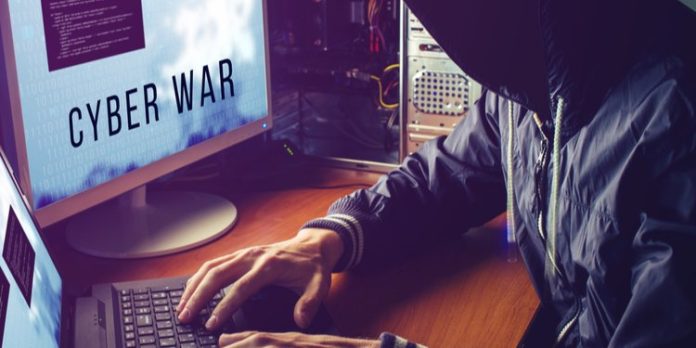Society’s dependence on technology and an always-online connection is beginning to reveal an increasing number of vulnerabilities that are much bigger than any government or business. For example, we have already witnessed the fragility of the energy supplies and supply chains that many have taken for granted. In addition, social media echo chambers, censorship, and disinformation have all contributed to the polarization that divides communities across the world.
Anyone can target an attack on our critical infrastructure. Anything from power grids to water supplies is now a target for cyberattackers. In addition, both ends of the financial spectrum, from Canadian truckers to Russian billionaires, have had their assets frozen. As a result, leaders face difficult and complex choices that could protect society while impacting personal freedoms. Thankfully, this is not another political article but a wake-up call that an online connection cyber resiliency is now entangled with everything in our digital world.
We now manage everything from our smartphones. Online banking and an increasingly cashless society mean that every bill, payment, or purchase relies on the internet. Many are also filling their homes with smart products to manage their entertainment, heating, lighting, and even cooking. In addition, many homes are protected with CCTV, smart doorbells, and burglar alarms. Even the feeling of belongingness, confidence, and esteem was largely fostered online during lockdowns during the pandemic.
Maslow’s pyramid of needs highlighted that our basic physiological needs include food, water, rest, warmth, safety, and security. But the bigger question is how many of these would be impacted if a global cybersecurity attack removed our always-on connection to the services we have become so dependent on.

Is a cybersecurity war already underway?
There is a strong argument that we are already in the early stages of a global cyberwar. Our news feeds are bombarded every week with stories of data breaches or ransomware attacks where critical data from governments and businesses have been compromised which can impact the national security and stability of a nation.
The SolarWinds hack and the Kaseya attack show how everything connected has become a target as attackers begin to think much bigger than merely stealing data. Sabotage of military databases and attacks on critical infrastructure have also been rising steadily over the last few years against public transport systems, power grids, banking, water supplies, supply chains, and hospitals. When combined with online disinformation campaigns, we begin to see the impacts of destabilization.
Bad actors have an expanding list of attack vectors at their disposal. Unfortunately, phishing, malware, and traditional viruses are often preferred to effectively take down the critical infrastructure that we all depend on. DDoS attacks are no longer just used by script kiddies and are often considered an easy way to prevent users from accessing their devices or networks.
The global shortage of semiconductors
Elsewhere, some analysts are casting a watchful eye on the tensions between China and Taiwan. There is currently a global chip shortage, and Taiwan now accounts for 92% of the world’s most advanced semiconductor manufacturing capacity. The problem is that semiconductors are the brains of modern electronics. Everything from smartphones, laptops, and game consoles to the cars we drive depends on them.
The global chip shortage is responsible for big brands such as Jaguar Land Rover losing £9m ($12m) in the final three months of 2021 alone. The war in Ukraine is already responsible for halting the production of over half of the world’s neon output for chips. But within a few days of the Russian invasion of Ukraine, Taiwan also revealed it would be joining the international sanctions against Russia.
With the entire world being reliant on chip makers in Taiwan, every business is vulnerable, and arguably the reason why many analysts believe the island nation is so attractive to Chinese authorities. However, it’s time for the average person to understand that the ramifications of this global chip shortage are much more than a difficulty getting their hands on the latest iPhone or PS5 games console.
As the digitalization of everything continues to engulf every aspect of our lives, the fear around big tech is no longer just about workplace surveillance or being betrayed by your smart home.
Instead, people should consider who will control the chips that power everything and how new technologies introduce more cyber risks and vulnerabilities.
In recent weeks Russia has amassed up to 190,000 troops in the attack against Ukraine. Although many will sympathize and support the brave people fighting back, some will look at the map and think it’s a long way from where they are living their lives. But cyber attackers do not care about borders.
If we do enter a world cyberwar where attackers exploit weaknesses, poor cyber hygiene, and vulnerabilities, we run the risk of mass casualties without a single shot being fired. Hospital emergency rooms without power or mass riots caused by misinformation campaigns and the absence of communication networks could impact every individual wherever you are reading this.
However, it doesn’t have to be this way, and it’s simply a case of recognizing that cyber security is everyone’s business, and it needs to be a strategic priority for governments and businesses. Companies also need to invest in their people to tackle the skills gap as well as recruit and retain cyber talent. If the prospect of everything going offline is enough to keep you awake now, maybe it’s an excellent opportunity to be proactive about your cyber resilience now before it’s too late.











